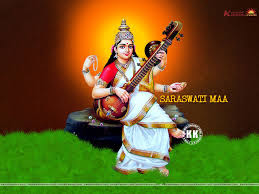Vedantasara-2.
11. Rites such as Chandrayana etc., which are instrumental in the expiation of sin, are Prayaschittas or penances.
12. Mental activities relating to the Saguna Brahman – such as are described in the Sandilya Vidya are Upasanas or devotions.
13. Of these, Nitya and other works mainly serve the purpose of purifying the mind; but the Upasanas chiefly aim at the concentration of the mind, as in such Sruti passages, “Brahmanas seek to know this Self by the study of the Vedas, by sacrifice” (Brihadaranyaka-IV-4-22); as well as in such Smriti passages, “they destroy sins by practising austerities” (Manu 12.104)
14. The secondary results of the Nitya and the Naimittika Karma and of the Upasanas are the attainment of the Pitruloka and the Satyaloka respectively; as in the Sruti passages, “By sacrifice the world of the Fathers, by knowledge (Upasana) the world of the Devas (is gained)"”(Br. Up.I.5.16)
15. The means to the attainment of Knowledge are: discrimination between things permanent and transient; renunciation of the enjoyment of the fruits of actions in this world and hereafter; six treasures, such as control of the mind etc., and the desire for spiritual freedom.
16. Discrimination between things permanent and transient; this consists of the discrimination that “Brahman alone is the permanent Substance and that all things other than It are transient.”
17. The objects of enjoyment hereafter, such as immortality etc., being as transitory as the enjoyment of such earthly objects as a garland of flowers, sandal paste and sex-pleasures, which are transitory, being results of action – an utter disregard for all of them is renunciation of the enjoyment of fruits of action in this world and hereafter.
18. Sama etc., comprise Sama or the restraining of the outgoing mental propensities, Dama or the restraining of the external sense-organs, Uparati or the withdrawing of the Self, Titiksha or forbearance, Samadhana or self-settledness, and Sraddha or faith.
19. Sama is the curbing of the mind from all objects except hearing etc.,
20. Dama is the restraining of the external organs from all objects except that.
Continues...




Comments